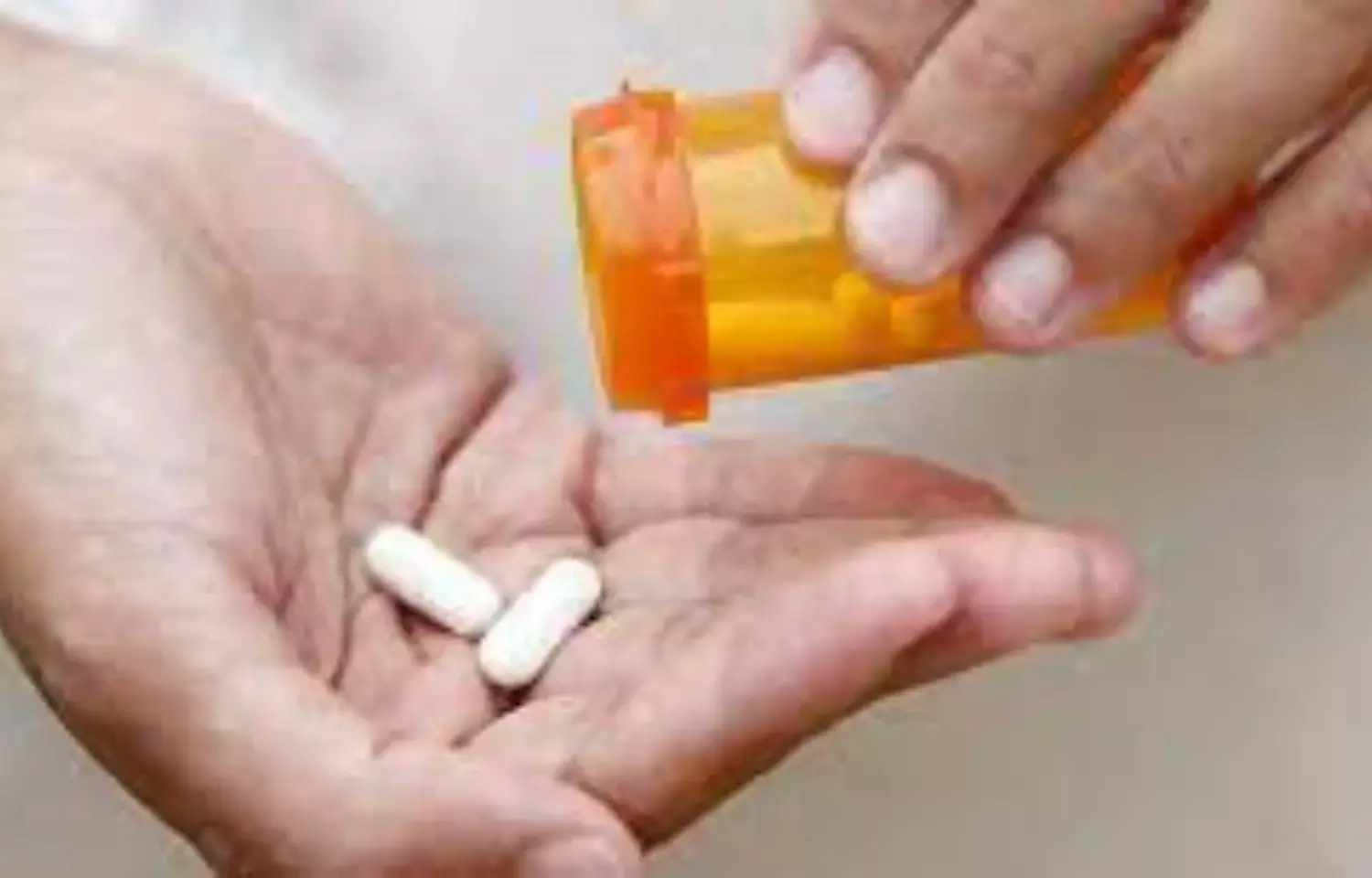- Home
- Medical news & Guidelines
- Anesthesiology
- Cardiology and CTVS
- Critical Care
- Dentistry
- Dermatology
- Diabetes and Endocrinology
- ENT
- Gastroenterology
- Medicine
- Nephrology
- Neurology
- Obstretics-Gynaecology
- Oncology
- Ophthalmology
- Orthopaedics
- Pediatrics-Neonatology
- Psychiatry
- Pulmonology
- Radiology
- Surgery
- Urology
- Laboratory Medicine
- Diet
- Nursing
- Paramedical
- Physiotherapy
- Health news
- Fact Check
- Bone Health Fact Check
- Brain Health Fact Check
- Cancer Related Fact Check
- Child Care Fact Check
- Dental and oral health fact check
- Diabetes and metabolic health fact check
- Diet and Nutrition Fact Check
- Eye and ENT Care Fact Check
- Fitness fact check
- Gut health fact check
- Heart health fact check
- Kidney health fact check
- Medical education fact check
- Men's health fact check
- Respiratory fact check
- Skin and hair care fact check
- Vaccine and Immunization fact check
- Women's health fact check
- AYUSH
- State News
- Andaman and Nicobar Islands
- Andhra Pradesh
- Arunachal Pradesh
- Assam
- Bihar
- Chandigarh
- Chattisgarh
- Dadra and Nagar Haveli
- Daman and Diu
- Delhi
- Goa
- Gujarat
- Haryana
- Himachal Pradesh
- Jammu & Kashmir
- Jharkhand
- Karnataka
- Kerala
- Ladakh
- Lakshadweep
- Madhya Pradesh
- Maharashtra
- Manipur
- Meghalaya
- Mizoram
- Nagaland
- Odisha
- Puducherry
- Punjab
- Rajasthan
- Sikkim
- Tamil Nadu
- Telangana
- Tripura
- Uttar Pradesh
- Uttrakhand
- West Bengal
- Medical Education
- Industry
Most oral drugs for chronic prostatitis or chronic pelvic pain syndrome not beneficial: Lancet

China: A recent study comparing medications for the treatment of chronic prostatitis/chronic pelvic pain syndrome (CP/CPPS) regarding safety and efficacy found pharmacological treatments to have little evidence supporting efficacy. The study was published in the Lancet journal EClinicalMedicine.
The researchers, therefore, advise carefully weighing the benefits of medications against their potential harms. "Future studies could personalize therapy for individuals in accordance to specific symptoms of CP/CPPS and identify nonpharmacological targets," they wrote.
Pharmacological treatments are being empirically used for chronic prostatitis/chronic pelvic pain syndrome. However, there is a lack of quantitative comparative safety and effectiveness of multiple pharmacological treatments. Zongshi Qin, Guang'anmen Hospital, China Academy of Chinese Medical Sciences, Beijing, China, and colleagues, therefore, performed an updated network meta-analysis to compare and rank medications regarding efficacy and safety, which have been used for the treatment of CP/CPPS.
For this purpose, the researchers searched the online databases from inception to March 22, 2022. It included randomized controlled trials comparing two or more oral pharmacological treatments for patients with CP/CPPS. Four reviewers independently screened the title, abstract, and full-text screening.
Efficacy (the National Institutes of Health Chronic Prostatitis Symptom Index [NIH CPSI] total score, urinary score, pain score, and quality of life score [QoL]) and safety (adverse events). were the primary outcomes.
Salient findings include:
· 25 studies (3514 patients) assessed 26 treatments. Low to very low-quality evidence indicated that doxazosin and the doxazosin, ibuprofen, and thiocolchicoside combination were significantly more effective than placebo in the NIH CPSI total score.
· Other NIH CPSI relative outcomes (pain, urinary, and QoL scores) showed a similar pattern.
· Low and very low-quality evidence suggested that combination treatment including doxazosin, ibuprofen, and thiocolchicoside and the tamsulosin and dapoxetine combination caused more adverse events.
· In half of all comparisons regarding NIH CPSI pain scores and quality of life scores, heterogeneity was minimal or low.
· Heterogeneity was high in both NIH CPSI total symptom scores and pain scores for tamsulosin versus placebo.
· There was also high heterogeneity in NIH CPSI urine scores for the combination of tamsulosin and ciprofloxacin versus tamsulosin, tamsulosin, and levofloxacin versus tamsulosin, and tamsulosin versus placebo.
The researchers conclude, "pharmacological treatments have little evidence supporting efficacy for CP/CPPS." Therefore, it is advised to carefully weigh the benefits of medications against their potential harms.
"Future studies could personalize therapy for individuals according to specific symptoms of CP/CPPS and identify nonpharmacological targets for CP/CPPS," they wrote.
Reference:
Qin Z, Zhang C, Guo J, Kwong JSW, Li X, Pang R, Doiron RC, Nickel JC, Wu J. Oral pharmacological treatments for chronic prostatitis/chronic pelvic pain syndrome: A systematic review and network meta-analysis of randomised controlled trials. EClinicalMedicine. 2022 May 20;48:101457. doi: 10.1016/j.eclinm.2022.101457. PMID: 35706494; PMCID: PMC9125656.
Dr Kamal Kant Kohli-MBBS, DTCD- a chest specialist with more than 30 years of practice and a flair for writing clinical articles, Dr Kamal Kant Kohli joined Medical Dialogues as a Chief Editor of Medical News. Besides writing articles, as an editor, he proofreads and verifies all the medical content published on Medical Dialogues including those coming from journals, studies,medical conferences,guidelines etc. Email: drkohli@medicaldialogues.in. Contact no. 011-43720751


